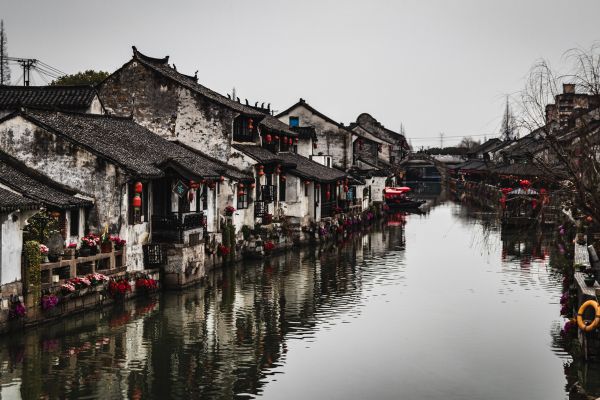
Courts of Mainland China have accepted several applications from Hong Kong for interim reliefs in support of the arbitral proceedings since the 2019 Arrangement.
The courts of the Mainland have accepted several applications from Hong Kong for interim reliefs in support of the arbitral proceedings. This shows that since 1st Oct. 2019, the entry into force of the Arrangement Concerning Mutual Assistance in Court-ordered Interim Measures in Aid of Arbitral Proceedings by the Courts of the Mainland and of the Hong Kong Special Administrative Region (hereinafter referred to as the “Arrangement”) has spoken for itself.
I. Norms: The parties to the arbitral proceedings in Hong Kong apply to the Mainland court for interim measures
Norms: How do parties from Hong Kong apply to the Mainland court for interim measures?
In fact, before the promulgation of the Arrangement, the courts of the Mainland and of Hong Kong had already supported each other in terms of application for interim measures. Wuhan Maritime Court, Guangzhou Maritime Court, and Guangzhou Intermediate People’s Court had successively supported the property preservation applied by the parties to the arbitral proceedings in Hong Kong. [1] At the same time, the Court of First Instance of the High Court of Hong Kong also supported the injunction applied by the parties to the arbitral proceedings in Chinese Mainland in the case of Chen Hongqing v Mi Jingtian [2017] HKCFI 1148 on disputes relating to the voting rights of a Hong Kong company. [2]
After the promulgation of the Arrangement, there are provisions for the competent courts to address the application for interim measures, the parties who may apply for interim measures, materials to be submitted for application for interim measures, matters to be stated in the application form, examination and decision of the court on the application, relevant costs, etc. This will greatly improve the predictability of mutual assistance in court-ordered interim measures in aid of arbitral proceedings between Mainland China and Hong Kong.
According to Article 3 of the Arrangement, the Mainland competent court shall be definite. The parties to the arbitral proceedings in Hong Kong shall apply to the Mainland Intermediate People’s Court of the respondent’s place of residence or the place where the property or evidence is situated for interim measures. If the respondent’s place of residence or the place where the property or evidence is situated fall within different courts’ jurisdiction, the applicant shall apply to any one of those people’s courts but shall not make separate applications to two or more people’s courts. Pursuant to Article 4 of the Arrangement, when applying to the Mainland court for interim measures, the application form for interim measures, the arbitration agreement, the identity documents, the arbitration application form and the evidence involved, the certificate of acceptance by the arbitration institution and other supporting materials shall be submitted as well.
On 26 Sept. 2019, in order to implement the Arrangement, the Department of Justice of Hong Kong published the List of Qualified Arbitral Institutions under Hong Kong-Mainland Arrangement. Such qualified arbitral institutions include:
Hong Kong International Arbitration Centre
China International Economic and Trade Arbitration Commission Hong Kong Arbitration Center
International Court of Arbitration of the International Chamber of Commerce – Asia Office
Hong Kong Maritime Arbitration Group
South China International Arbitration Center (HK)
eBRAM International Online Dispute Resolution Centre.[3]
II. Progress in practice: The Hong Kong arbitration cases assisted by the Mainland court as to interim measures
On 8 Oct. 2019, Shanghai Maritime Court accepted a property preservation application filed by the parties to the arbitral proceedings in Hong Kong, which was ruled in favor of the applicant on the same day according to law. This was the first property preservation application of the arbitral proceedings in Hong Kong accepted by the Mainland court since the Arrangement came into force.
In May 2018, the applicant (a Hong Kong shipping company) and the respondent (a Shanghai company) signed a voyage charter, agreeing that the applicant would transport a batch of coal from Indonesia to Shanghai for the respondent by providing a freighter. After the cancellation of the lease by the respondent, the applicant suffered from losses arising therefrom and thus filed an ad hoc arbitration in accordance with the contract. During the ad hoc arbitration, the two parties reached a settlement agreement, stipulating that the respondent should pay 180,000 USD to the applicant. However, the respondent failed to pay as agreed, and the applicant filed an arbitration on 16 July 2019 with HKIAC pursuant to the arbitration terms agreed in the settlement agreement.
In order to safeguard its legitimate rights and interests, the applicant, through HKIAC, transmitted its application for property preservation to Shanghai Maritime Court, requesting to sequester, seize and freeze the account and other property of the respondent. After receiving the application for interim measures, Shanghai Maritime Court, in accordance with the Arrangement and China’s Civil Procedure Law, etc., accepted the case, formed a collegial panel for case trial, and then rendered a ruling in favor of the applicant.
The case above shows that after the implementation of the Arrangement, it facilitates the parties in both places to apply to the court for interim measures in arbitral proceedings. With the assistance of the court, the legitimate rights and interests of the parties are properly protected, which is conducive to the smooth progress of the arbitral proceedings and the effective enforcement of the arbitral award.
III. Prospect
According to HKIAC, since the Arrangement came into force on 1st Oct. 2019, HKIAC has accepted 11 applications for interim measures in arbitral proceedings within two months. The 11 applications are all from arbitral proceedings in Hong Kong governed by HKIAC Administered Arbitration Rules, including 10 applications for property preservation and 1 application for evidence preservation. Moreover, in the above-mentioned cases, all applicants have unilaterally applied to the Mainland people’s court for property preservation. In the process of accepting the application, HKIAC is responsible for issuing a letter to the relevant Mainland people’s court to prove that the case has been accepted by it. As of Dec. 2019, four applications for property preservation transferred by HKIAC have been supported by the people’s court, with the amount involved up to 1.7 billion CNY, which has safeguarded the smooth progress of the arbitral proceedings. [4]Viewed from practice, the flourish of arbitration in Hong Kong is closely related to the Chinese Mainland. However, Hong Kong, if losing its social stability due to the protests, will lose its arbitration business gradually. [5]It can be predicted that in the future, the Arrangement will be applicable to more arbitration cases with applications for interim measures, thus building a solid and stable bridge for the cooperation between Chinese Mainland and Hong Kong.
[1] (2016)鄂72财保427号民事裁定书;(2016)粤72财保字第11号民事裁定书;(2014)穗中法民四初字第42号民事裁定书。
[2] Chen Hongqing v Mi Jingtian, Zhao Liping, Li Maohuan and Yu Yuchuan [2017] HKCFI 1148.
[3] Arrangement Concerning Mutual Assistance in Court-ordered Interim Measures in Aid of Arbitral Proceedings by the Courts of the Mainland and of the HKSAR (“Arrangement”) Contact Details of Institutions and Permanent Offices Which Are Qualified under Article 2(1) of the Arrangement, https://www.doj.gov.hk/pdf/2019/list_of_institutions_e.pdf, last visited on October 17, 2019.
[4] HKIAC Publishes Information on its Practice and Experience under the Hong Kong-Mainland Arrangement on Interim Measures, https://www.hkiac.org/news/hkiac-practice-interim-measures-arrangement, last visited on December 24th, 2019.
[5] Jie (Jeanne) Huang and Winston Ma, “Arbitration and Protest in Hong Kong”, http://conflictoflaws.net/2019/arbitration-and-protest-in-hong-kong/, last visited on December 24th, 2019.
Photo by Krzysztof Kotkowicz(https://unsplash.com/@lancaster83) on Unsplash
Contributors: Jian Zhang 张建









